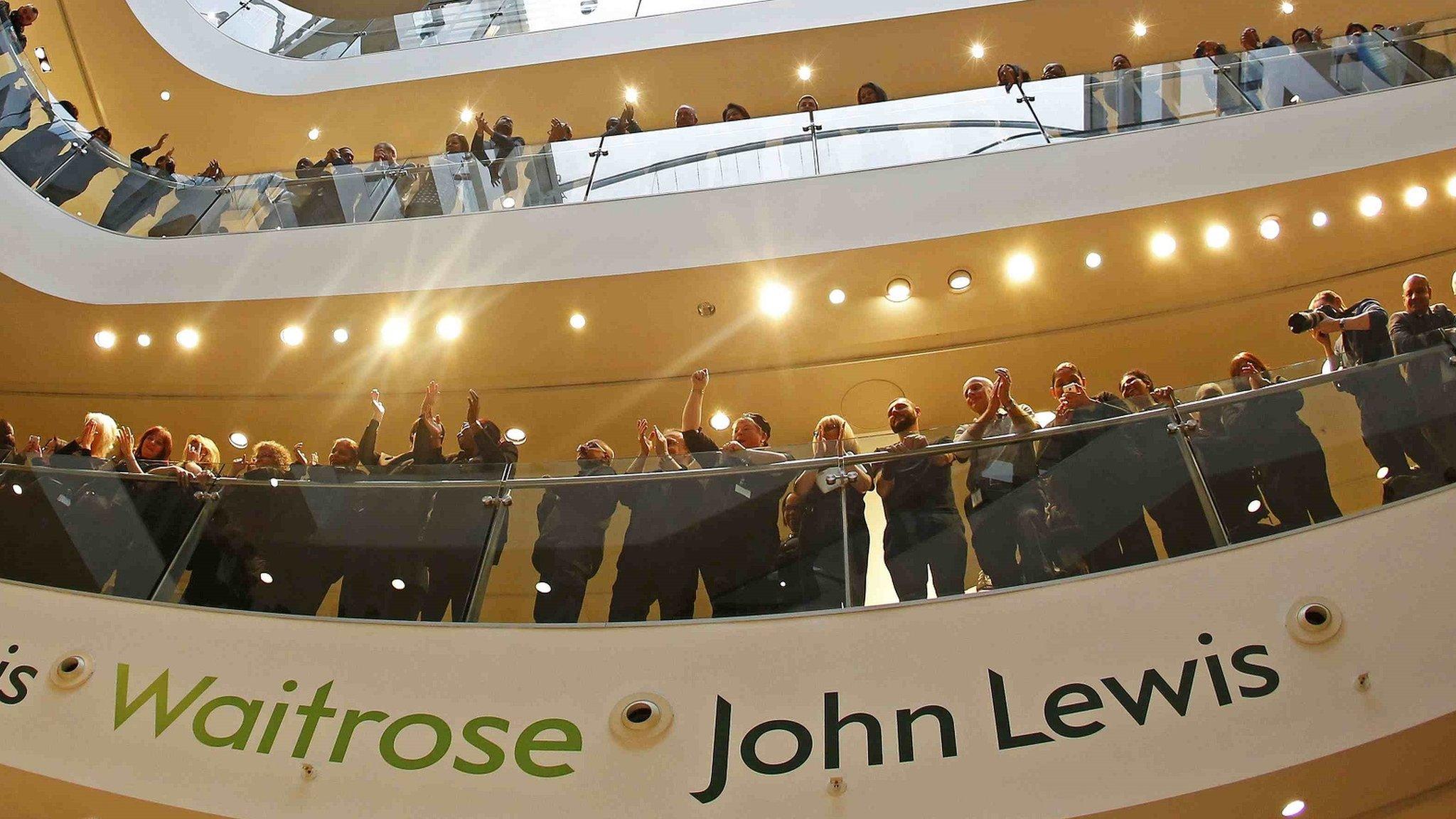John Lewis profits hit by competition and higher pay
- Published
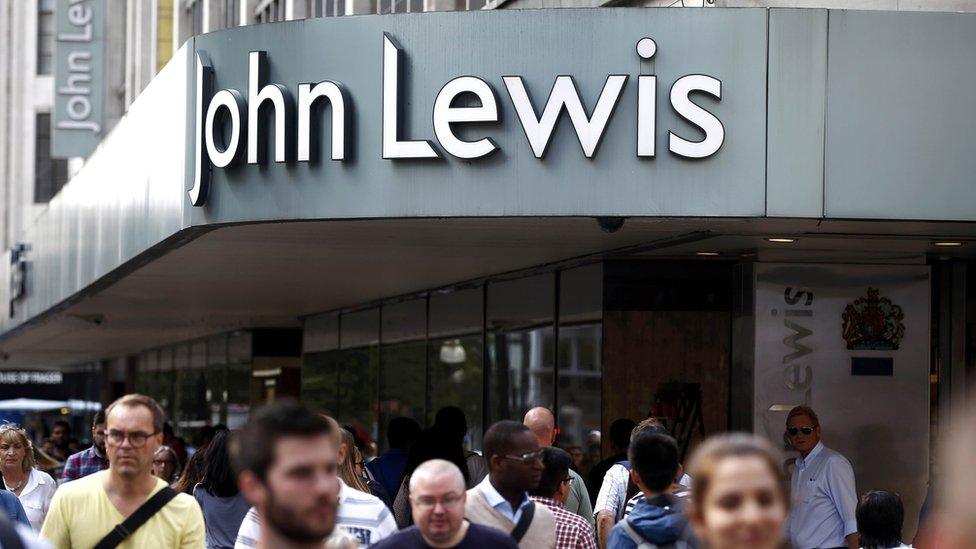
Profits at the John Lewis Partnership have been hit by a "very competitive" retail market and higher staff pay.
Pre-tax profits for the six months to July fell by 14.7% to £81.9m and are expected to remain under pressure.
Like-for-like sales at John Lewis department stores rose 3.1% during the half year, but fell 1% at Waitrose supermarkets.
John Lewis chairman Sir Charlie Mayfield told the BBC that market conditions were tough.
"This is a very competitive market. We're committed to having great service and great prices. And then also, we're taking steps to prepare the business for the future," he said.
That would mean cutting staff numbers as part of a drive to both improve its financial position and strengthen the appeal of its "two well-loved brands".
Clothing retailer Next also warned on Thursday that recent trading had been "challenging and volatile" as it reported falling sales at its shops.
Operating profits for John Lewis stores fell 31.2% to £32.4m and were down 28.9% to £96.3m for Waitrose.
Aldi has overtaken Waitrose as Britain's sixth-biggest supermarket chain, although its market share has risen slightly in recent months to 5.3%.
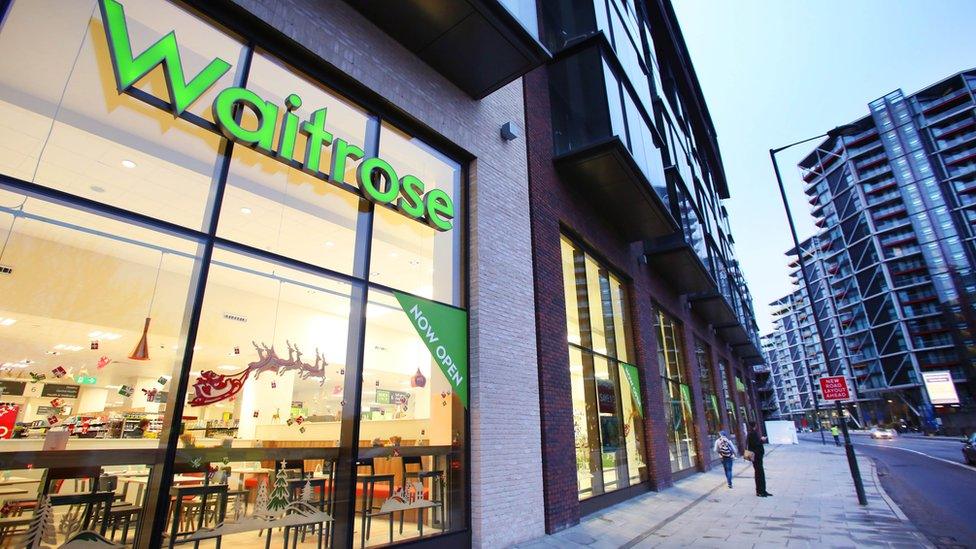
The retailer has scrapped plans to open seven new Waitrose supermarkets over the next two years and booked a £25m charge relating to that decision.
Retail analyst Nick Bubb described the half-year profits as "disappointing" and said he had expected the pre-tax figure to rise to about £100m.
John Lewis said first-half profits were always lower and often more volatile than the second half of the year, which usually accounts for at least two-thirds of the annual total.
'Far-reaching' changes
Total sales and market share were both higher, while the EU referendum result had little impact on sales.
"Instead there are far-reaching changes taking place in society, in retail and in the workplace that have much greater implications," Sir Charlie said.
"Our ownership structure makes it especially important that we manage the partnership carefully and thoughtfully for the long term and our plans anticipate the impact of these bigger changes."
He said the group had decided to focus its investment on IT, its distribution network and staff pay.
John Lewis is an employee-owned partnership that shares its profits among its more than 90,000 staff.
The group said it wanted to create "better jobs, for better performing Partners [workers], on better pay", but would spend £30m to keep pay above the minimum National Living Wage rates.
In January, staff learned that annual bonuses fell for the third consecutive year to 10% of their annual salary, down from 11% in 2015, 15% in 2014 and 17% in 2013.
The deficit in the partnership's pension fund also soared 54% to £1.45bn compared with the figure in January due to low bond yields.
The British Retail Consortium (BRC) warned earlier this year that rising costs due to the National Living Wage could accelerate job losses in the retail sector.
Sir Charlie, who is also BRC chairman, said that while retailers supported the introduction of higher staff pay, there would be an effect on employment.
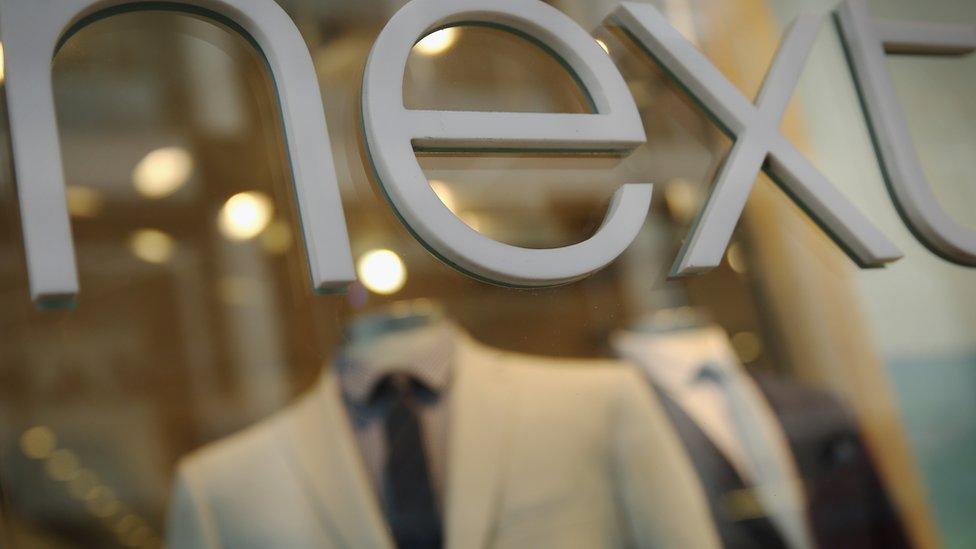
Next suffers
The UK retail sector employs three million people. That number could fall by nearly a third in less than a decade, the BRC said, as consumers increasingly shop online.
Next said on Thursday that pre-tax profits fell 1.5% to £342.1m for the six months to July, held back by a 16.8% slide from its retail stores.
Chief executive Lord Wolfson said: "It has been a challenging year so far, with economic and cyclical factors working against us, and it looks set to remain that way until mid-October at the earliest."
The September heatwave has done little to help clothing retailers, he added: "Consumers are only buying clothes when they need to. In this weather, no one's buying winter clothes."
Next repeated a warning first made last month that prices may rise up to 5% next year to offset the sharply weaker pound in a move that could hit sales further.
- Published15 September 2016
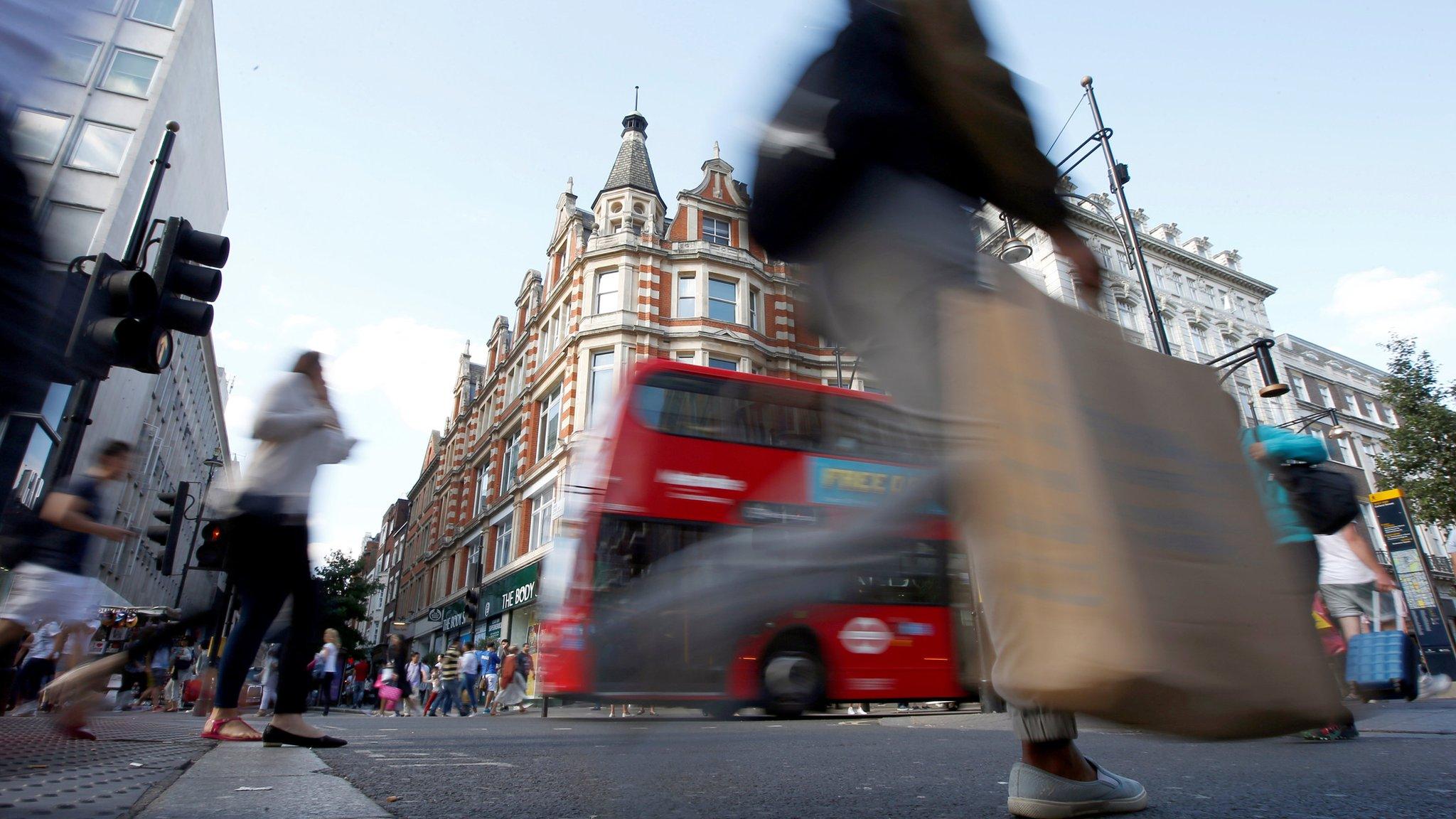
- Published6 September 2016
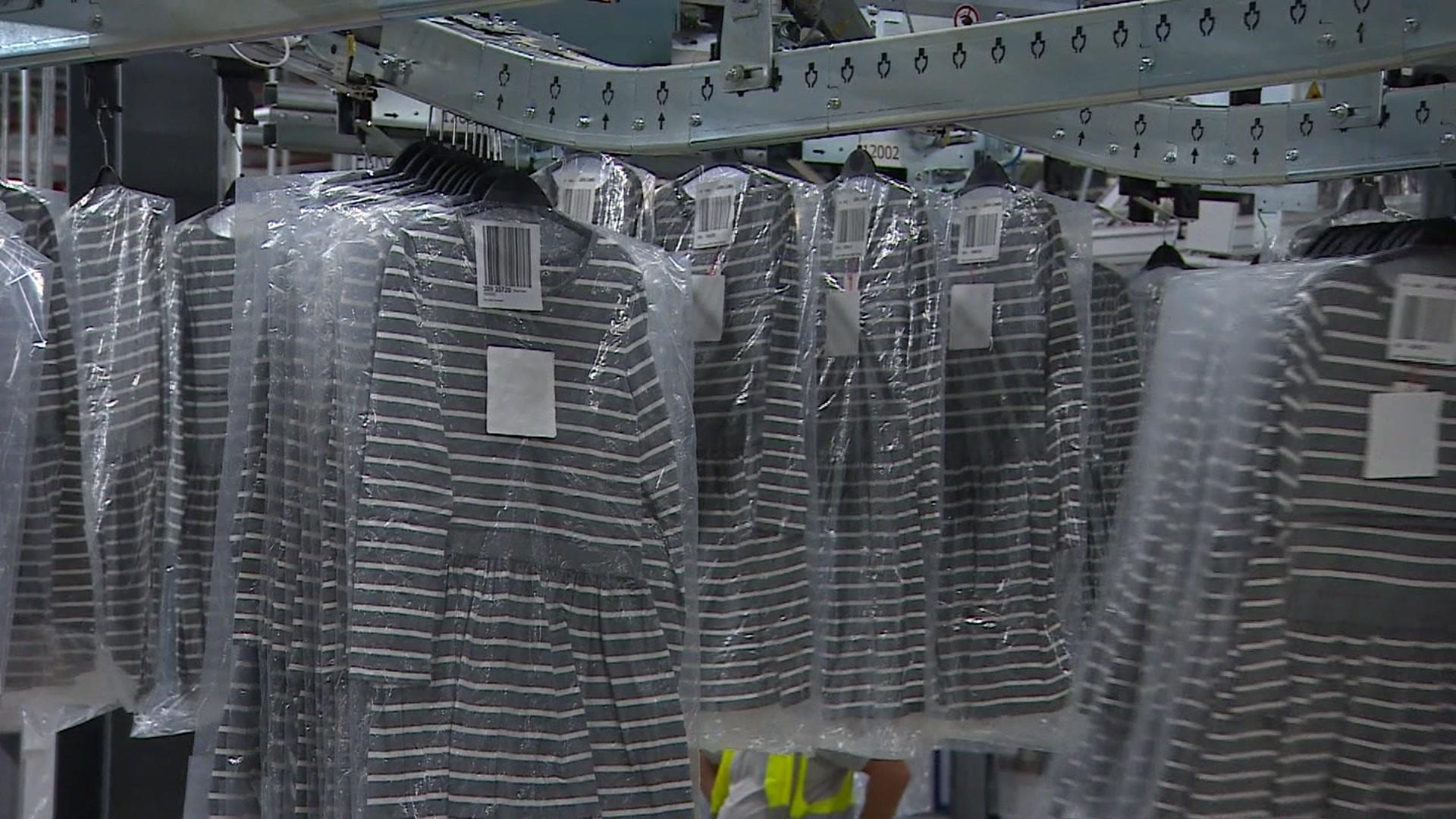
- Published10 March 2016
